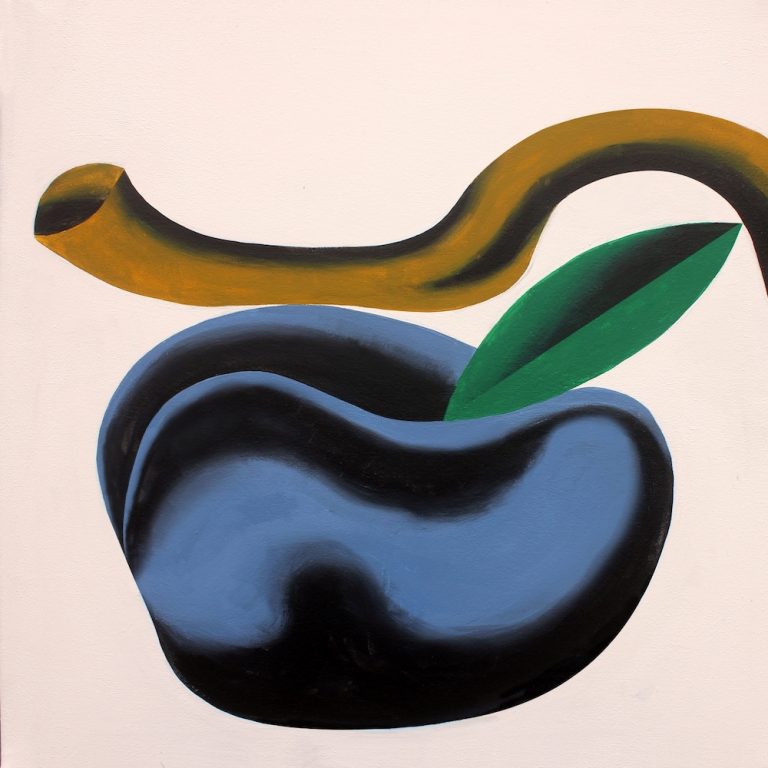On their fifth studio album Widowspeak move away from their brand of Mazzy Star/Madder Rose-infused hazy 90s dream-pop to a more gently-pitched acoustic folk – albeit retaining a darkness of subject matter that the music belies. Their sound remains a woozy delight, but with a more direct and purposeful feel to it, whilst dishing up a panoramic view of life, injustice and the American way.
Plum opens with the title track, which is disappointingly flat. Molly Hamilton’s voice is effortless in delivery, but the track’s production feels too clean and a little too Americana-by-numbers. Don’t get me wrong, it’s a decent enough tune that loads of bands would snatch your hand off to produce, but with the high bar that Widowspeak have set throughout their career this feels less heartfelt and sincere than anything they have released to date. The anticipation of pressing ‘play’ has been brought into the cold light of day.
Thankfully, after a less than rapturous opening, the rest of Plum is straight up gorgeous. “The Good Ones” is a shuffling, slacker anthem with a killer guitar hook from Robert Earl Thomas that is understated yet repeated enough to stay with you long after the song has finished.
“Money” starts with a chiming guitar line that feels like Melody’s Echo Chamber’s “I Follow You” as reimagined by a C86 jangle indie pop band. It’s a perfectly-timed song for the late capitalist era that’s gorging itself silly on the current global platform without so much as a shrug from most people. “Will you get back what you put in?” Hamilton asks, the resigned tone in her voice leaning the listener towards an understanding that she is being rhetorical. There is also an environmental concern here, with the refrain “Money doesn’t grow on trees” asserting the natural link between the resource exhausting nature of capitalism and the impending climate doom that almost feels too late to address now in any meaningful manner.
Widowspeak are at their best when they infer a sense of ennui-inducing yearning, of unrequited love or a sense of poetic despondent realism. This is best evidenced with the line “What a time to be alive” on “Money”, which feels so pointed and full of dramatic irony that the wistfulness of the music is displaced by the disquiet of the lyric. Beautiful stuff.
The narrative theme of the all too often-deflating nature of employment continues on “Breadwinner”, which questions the very essence of unrewarding division of labour in terms of measuring time by “Vacations you can’t take.” The song starts with a warm synth sound that feels like it’s come straight from the opening sequence of a 1980s John Hughes film, and the warmth of the song partially comes from it’s in this sense of the familiar that the timbre of the music provides. A lover stepping up to become the breadwinner in a relationship to ease the mental stresses and aid the wellbeing on her partner doesn’t have the foundations for the greatest romance ever sold, yet here we are. This is what we have allowed ourselves to become.
The 80s synth tones comes back on “Amy”, which opens with a keyboard refrain that convinces you John Farnham or David Coverdale are about to leap forth with their masculine baritones. Instead, Hamilton channels the austere energy of Hope Sandoval to perfection, her languid voice swirling radiantly as the bass guitar carries most of the melody on its back. The last few songs on the album push the instrumentation down and bring Hamilton’s vocals more front and centre and this can never be a bad thing. It’s a voice to revel in, to soundtrack the heady rush of falling in and out of love, the accompaniment to so many late nights left wondering what might have been.
Plum is a warm hug of a record. The kind you get from those types of friends you know you don’t need to keep in touch with all that regularly, but when you do it feels as though they’ve never been away and time goes all too quickly.

